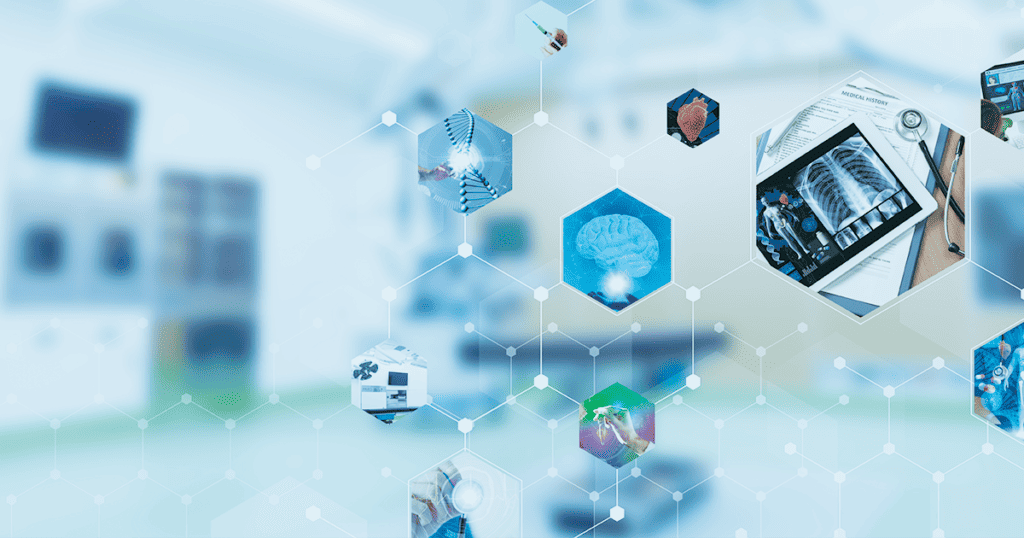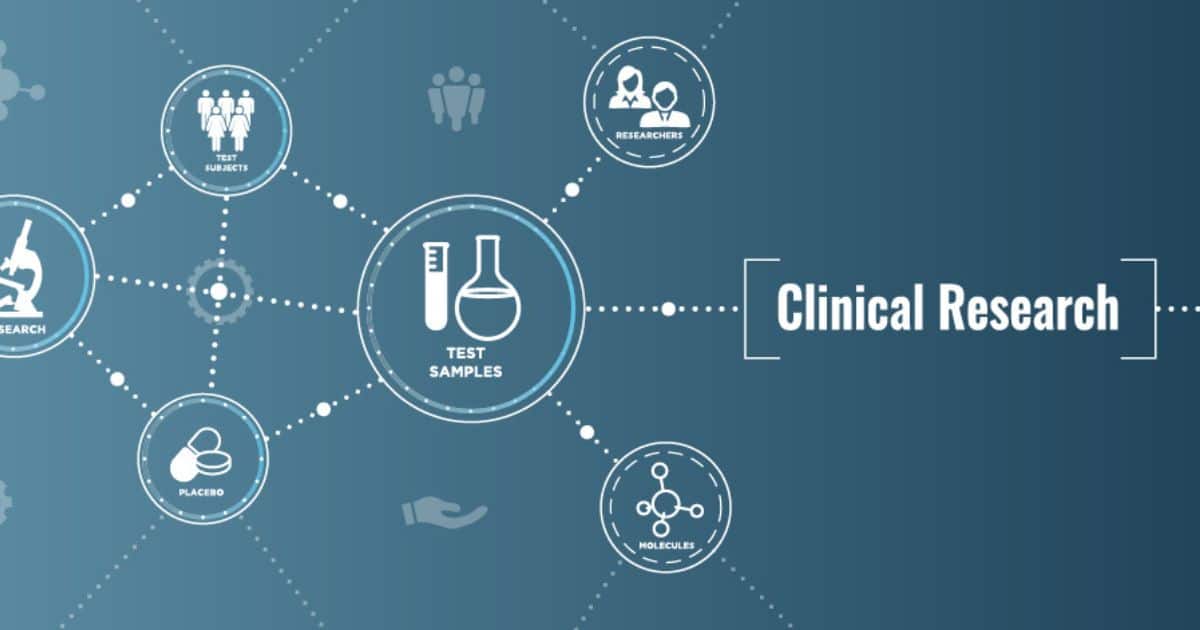
Video
University of Iowa Hospitals and Clinics Embrace Data-Driven Healthcare
Watch Now

Caresyntax Article
March 13, 2023
How Global Collaboratives Inform and Inspire Product Development, Surgical Education, and Training
The collaboration between healthcare technology vendors and clinicians is foundational for innovation and advancement in the practice of surgery. In this blog, we highlight how the Caresyntax clinical team collaborates with surgeons worldwide on research using innovative surgical data platform software and technology to advance surgical education, streamline perioperative efficiency, and improve patient outcomes in orthopedics, laparoscopic cholecystectomy (LC), hernia, and bariatric procedures.
Creating a Global Learning Network with Clinical Research
Caresyntax’s clinical collaboratives support global surgical research critical to the mission of making surgery safer and smarter. Through our research partnerships, we are discovering new ways to explore and leverage surgical data to improve surgical education and the quality of care.
Deliberate Practice in Orthopedic Surgical Education
Studies conducted by Philippe Liverneaux MD, PhD, Professor of Orthopaedics and Hand Surgery at Hôpitaux Universitaires de Strasbourg, France explore a new paradigm for surgical education: deliberate practice leveraging video-based skills assessment (VBA). “Deliberate practice is a technique for learning surgical procedures that is complementary to mentorship and experience, but shortens the growth phase of the learning curve, identifies improvement opportunities of junior surgeons, and reduces exposure to ionizing radiation during wrist surgery.”[i]
5 Principles of Deliberate Practice
Total Knee Arthroscopy (TKA) Collaborative
Navigation and guidance devices used in joint replacement, spine surgeries and arthroscopy generate a wealth of new data. Endo-, exoscopic and in-room camera video data helps create a unique High-Fidelity Surgical Record that can be used to increase efficiency and reduce operative variability.
The Caresyntax platform can be used to conduct team-based assessments, providing valuable insight to improve perioperative efficiency and patient safety.
Global Collaboration to Enhance the Safety of Lap Chole (LC)
Cholecystectomy ranks among the most frequent procedures performed worldwide; however, the risk of serious bile duct injury has remained unchanged for decades.[ii] Caresyntax recently successfully completed a 12-surgeon, 10-country collaborative to validate an assessment for the safe completion of a LC. The results were submitted to the 2023 SAGES Annual Meeting in Montreal, Canada. Two abstracts have been accepted, one of which will be presented in the New Technology podium presentation on the opening day of the meeting. The second abstract will be a podium presentation at the Biliary session on Saturday. Both podium presentations will be presented by Gina Adrales, MD, MPH, FACS, Associate Professor of Surgery, Chief – Division of Minimally Invasive Surgery, Director – Minimally Invasive Surgical Training and Innovation Center, Associate Director – Johns Hopkins Bariatric Surgery Fellowship, at Johns Hopkins Hospital.
Lap Chole Clip Application
One of the more critical phases of a laparoscopic cholecystectomy (lap chole) is the clipping of the cystic duct and artery before dividing them. Proper application prevents damaging critically important structures. Caresyntax has built and published two machine learning algorithms that could bring real-time safety to the OR. The surgical skill assessment study[iii] led by Joël L. Lavanchy at the Department of Visceral Surgery and Medicine, in Bern, Switzerland and a study using ClipAssistNet, a neural network-based image classifier[iv] showed improving the tip visibility could correctly provide a warning in 95 percent of cases.
Surgical Skill Assessments for Bariatric Procedures
Caresyntax continues to partner with Peter Nau, MD, MS, FACS Gastrointestinal, Minimally Invasive and Bariatric Surgery and Surgical Director, Digestive Health Center at University of Iowa Hospitals and Clinics, to speed up learning curves with objective metrics and learning videos to accelerate the learning curve for bariatrics fellows using video-based assessment. An abstract on his research on a new instrument to validate global technical safety in surgical procedures was submitted to the 2023 SAGES Annual Meeting and has been accepted. He will be conducting a podium presentation on opening hour, opening day of the New Technology session.
In addition, Dr. Nau’s poster on using postoperative review of video-based assessment to improve fellow performance to safely complete a commonly performed bariatric procedure will also be presented at SAGES.
Developing Structured Assessment Frameworks
The Caresyntax surgical data platform enables evaluation of patient outcomes, operational efficiency, surgical technique, and teamwork dynamics using video and structured assessment frameworks e.g., OSATS, GOALS, GEARS, and NOTSS.
To expand our assessment offering, Caresyntax has executed specialty collaboratives with surgeons worldwide to develop objective, procedure-specific assessments (OPSA) in multiple procedure types. These assessments help determine an individual’s competency in a specific procedure type, e.g., inguinal hernia, laparoscopic cholecystectomy, and foregut surgery. These new assessments are available in Caresyntax’s software now. These assessments will be important to assessing improvement of residents and fellows-in-training and assist in the development of competency-based programs, supporting the efforts of certifying boards in entrustable professional activities (EPAs).
Research on Validating Case Difficulty
A podium presentation by Gina Adrales, MD MPH of Johns Hopkins Hospital on the abstract: Validation of a case difficulty construct for video-based assessment (VBA) of trainee performance, will be presented at the American Surgical Education (ASE) conference on April 14th. This presentation will discuss the results of a preliminary study done by expert surgeon reviewers to rate case difficulty using the Global Case Difficulty assessment tool. The findings suggest that this tool may provide greater accuracy in defining stages of competency, required to grant autonomy to surgical trainees, in the era of entrustable professional activities (EPAs).
Caresyntax Hernia Collaborative
Vahagn C. Nikolian, MD, Assistant Professor of Surgery, Division of Gastrointestinal and General Surgery, Oregon Health & Science University School of Medicine, a member of the Caresyntax Hernia Collaborative, will share the results of the collaborative’s research as an e-poster at SAGES 2023. He will share findings on a new instrument to measure procedural safety and the granting of autonomy for inguinal hernia repair.
To learn more about the published research supported by Caresyntax and its surgical data platform, visit the Caresyntax resource library.
ENDNOTES
[i] Cafarelli, L., El Amiri, L., Facca, S. et al. Anterior plating technique for distal radius: comparing performance after learning through naive versus deliberate practice. International Orthopaedics (SICOT) 46, 1821–1829 (2022). https://doi.org/10.1007/s00264-022-05464-4
[ii] Fingar, KR, et al. Most Frequent Operating Room Procedures Performed in U.S. Hospitals, 2003-2012. Agency for Healthcare Research and Quality. December 2014.
[iii] Lavanchy, J.L., Zindel, J., Kirtac, K. et al. Automation of surgical skill assessment using a three-stage machine learning algorithm. Sci Rep 11, 5197 (2021). https://doi.org/10.1038/s41598-021-84295-6
[iv] Aspart, F., Bolmgren, J.L., Lavanchy, J.L. et al. ClipAssistNet: bringing real-time safety feedback to operating rooms. Int J CARS 17, 5–13 (2022). https://doi.org/10.1007/s11548-021-02441-x